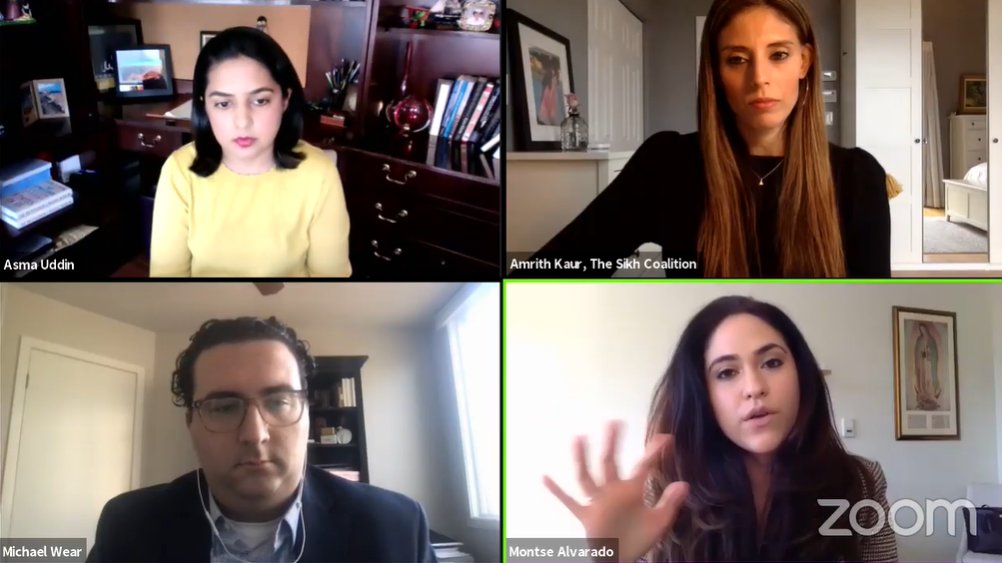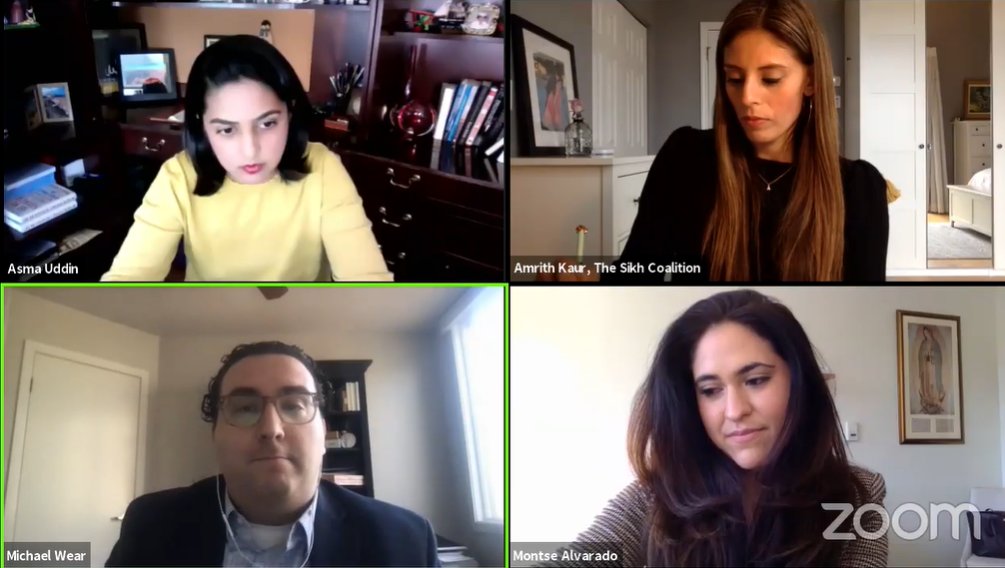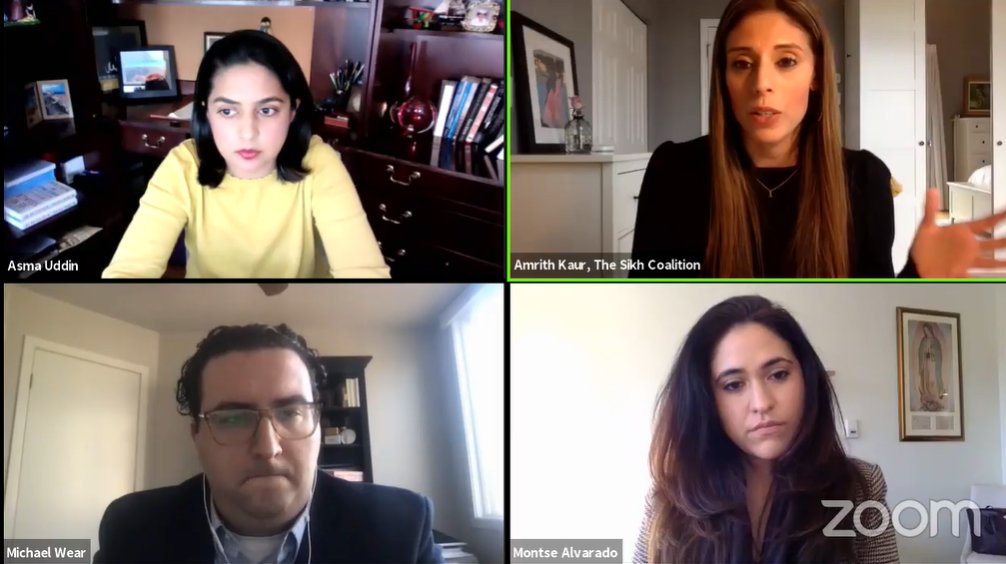Our conversation on the future of #ReligiousFreedom with @asmauddinesq, @MichaelRWear , @sikh_coalition, & @Mmontsealvarado is starting in 15 minutes.
We'll be live-tweeting below, and you can also join us on YouTube:
We'll be live-tweeting below, and you can also join us on YouTube:
. @asmauddinesq begins: "On Jan 6th, a violent mob of Trump supporters stormed the U.S. capitol ... it was political tribalism out of control, and has been called by multiple commentators as a 'Christian insurrection.'"
. @asmauddinesq: "For many, January 6th was a clear symbol of Christian nationalism and its violent underbelly... from many Christian leaders, though, we saw a strong repudiation of Trump and his values. And on the same day, we saw Rev. Raphael Warnock elected."
. @asmauddinesq: "With so much discourse about religious freedom focused on conservative Christians, what gets lost is the experience of religious minorities, such as American Muslims who face challenges such as the Muslim travel ban."
Our first question: "What has religious freedom come to mean in America today, and how did we get to this point?"
. @Mmontsealvarado: "Earlier bipartisan support for religious freedom was fueled by a desire to protect religions which may not be mainstream or accepted by the majority... and in fact, most Americans continue to say that religious freedom is still an important right."
. @MichaelRWear: "The incoming administration will need to make clear that religious freedom is for people of ALL faiths and none ... as the incoming president has said, religious freedom is an area where we need to 'lower the temperature.'"
Amrith Kaur of @sikh_coalition: "Religious freedom for Sikhs and other religious minorities should be based in the recognition and acknowledgment that there *has* been a system in place that didn't originally allow for religious freedom for all."
Amrith Kaur of @sikh_coalition: "I view the minority religious experience in 2021 as trying to move into the conversations we want to have around acknowledgment, restoration, and recognition. Particularly given what we've seen over the past few years, we have to start over."
. @MichaelRWear: "Successful advocacy around religious freedom will have to look like people speaking up for faith communities that are not their own ... these are the bridges that have to be built."
. @Mmontsealvarado shares an important point that some of America's legal language around religious freedom is so Protestant that in itself, it can be seen as discriminatory to minorities -- there's a need for more literacy and understanding of other faith communities.
. @MichaelRWear: "The last four years have shown us that religion is extremely salient ... ignoring religious freedom or trying to downplay it, not advancing a positive, forward-leaning vision of religious freedom ... is not reflective of the country we live in."
. @asmauddinesq: On Jan 6th, we saw the conflation of "religion" and "tribe," and the exclusion of other religions and forms of Christianity that don't align with the narrow religious visions of many of those present.
Amrith Kaur of @sikh_coalition : "What we saw from the Muslim ban and under the Trump admin was a complete decimation of our refugee and resettlement programs."
Amrith Kaur of @sikh_coalition: "Getting to know your neighbor, to understand people who are different from you, is step 1 to bridge-building. But the next step is doing an internal, in-house check, and this needs to happen on the level of government policies & individuals."
Amrith Kaur of @sikh_coalition : "I don't think there will be any reconciliation without accountability ... that's what justice is."
. @MichaelRWear: "Many elected officials have not approached religious communities as partners, but as problems to solve. Had they done otherwise, some of our conflicts could have been alleviated."
@Mmontsealvarado: "The hardest part is forcing people to choose between their religion and what they identify as ... making those decisions for other people is first and foremost wrong."
Amrith Kaur of @sikh_coalition: "I don't expect we'll ever get to a place of full understanding of each other, but I think we need to move forward toward that. We need a foundational system of checks and balances to meet these challenges."
Amrith Kaur of @sikh_coalition: "In the next decade, I think we're going to see a real movement by millennials and the next generations to help us get to a place where we've understood that access, understanding and tolerance are important, but dialogue is most important of all."

 Read on Twitter
Read on Twitter





